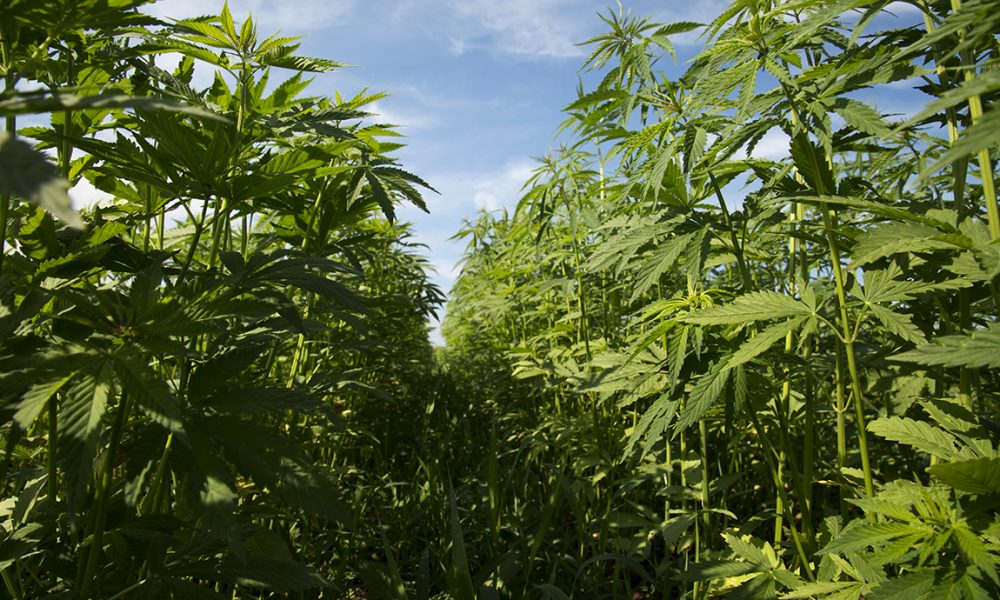Bipartisan leaders of key House and Senate committees are soliciting information from experts about best practices for developing a regulatory framework for CBD.
As the Food and Drug Administration (FDA) continues face pressure to create rules so that the hemp-derived cannabinoid can be lawfully marketed as food items or dietary supplements, bipartisan lawmakers have put out a Request for Information (RFI) to gather relevant information from subject matter experts.
The chairs and ranking members of the Senate Health, Education, Labor, and Pensions (HELP) Committee and House Energy & Commerce Committee are leading the effort, inviting people to weigh in on various issues related to FDA and CBD.
Specifically, they are asking for feedback on FDA’s position that there is not a regulatory pathway that enables it to enact regulations for CBD in the food supply or as a dietary supplement, the emergence of intoxicating cannabinoids like delta-8 THC that are synthetically produced using legal CBD, how regulations should “balance consumer safety with consumer access” and information about labeling requirements.
NEW: Bicameral Health Committee leaders @FrankPallone, @cathymcmorris, @SenSanders, and @SenBillCassidy issue request for information regarding FDA regulation of CBD 👇 https://t.co/YqMhZVkRta
— Energy & Commerce Democrats (@EnergyCommerce) July 27, 2023
“Since hemp was descheduled five years ago, consumers, manufacturers, and policymakers have sought clarity regarding the legal status of CBD,” the RFI says. “Farmers, food and beverage groups, and state regulators have shared their policy priorities with Congress. However, questions remain about the best way to provide a legal pathway to market for CBD products.”
Lawmakers are also requesting information about existing market dynamics and state-federal regulatory interactions. They included 29 questions in the RFI, which is open until August 18. Responses should be sent to [email protected] and [email protected].
“We are assessing the potential for a regulatory pathway for hemp-derived CBD products that prioritizes consumer safety and provides certainty to the U.S. market,” the lawmakers said. “We look forward to working with interested stakeholders on this process.”
The RFI letter is signed by Senate HELP Committee Chairman Bernie Sanders (I-VT) and Ranking Member Bill Cassidy (R-LA), as well as House Energy & Commerce Committee Chairwoman Cathy McMorris Rodgers (R-WA) and Ranking Member Frank Pallone (D-NJ).
Among other issues, respondents are being asked to weigh in on potential potency limits, warning labels, minimum age of sale, manufacturing and testing, ingredient prohibitions, adverse event reporting and potential THC content.
One question asks, “How should a regulatory framework account for CBD products marketed in combination with other substances that may alter or enhance the effects of CBD (e.g., caffeine, melatonin, etc.).”
Another notes that “other non-cannabinoid products are available on the market that have raised safety concerns among some individuals, which FDA has regulated without a substance-specific regulatory framework (e.g. kratom, caffeine, etc.).”
“How has FDA dealt with products containing those substances?” the lawmakers ask. “How might these products be implicated by a CBD-specific product framework?”
The request was distributed on the same day that a House Oversight subcommittee held a first-ever hearing focused on FDA’s inaction on CBD regulations.
—
Marijuana Moment is tracking more than 1,000 cannabis, psychedelics and drug policy bills in state legislatures and Congress this year. Patreon supporters pledging at least $25/month get access to our interactive maps, charts and hearing calendar so they don’t miss any developments.![]()
Learn more about our marijuana bill tracker and become a supporter on Patreon to get access.
—
Rep. James Comer (R-KY), who chairs the full Oversight Committee, has sharply criticized FDA after the agency announced in January that it would not be developing CBD regulations because it said that there is not an available pathway to create such rules and it would require congressional action.
The congressman said in April that his panel would be launching an investigation into the matter, and he requested that FDA turn over documents related to its decision not to regulated the cannabinoid. Even before the agency made that decision, the congressman expressed his intent to address the lack of rules.
The hemp industry took a major plunge in 2022, according to a report from the U.S. Department of Agriculture (USDA) that was released in April—and stakeholders say the FDA’s refusal to issue regulations for CBD products is largely to blame.
Bipartisan congressional lawmakers refiled a separate pair of bills in March that are also meant to provide a pathway for the regulation of hemp derivatives like CBD as dietary supplements and food and beverage additives.
Sens. Ron Wyden (D-OR), Rand Paul (R-KY) and Jeff Merkley (D-OR), along with Rep. Earl Blumenauer (D-OR), separately filed legislation last week that would remove regulatory barriers that FDA claims prevents it from allowing CBD sales.
The Hemp Access and Consumer Safety Act, which was also introduced last Congress but did not advance, would exempt “hemp, hemp-derived cannabidiol, or a substance containing any other ingredient derived from hemp” from certain federal restrictions, while permitting officials to enact labeling and packaging rules.
FDA’s announcement that it wouldn’t be regulating CBD came days after the agency released finalized guidance that focuses on developing cannabis-based drugs and outlined the process and unique considerations for scientists when it comes to hemp and marijuana.
Meanwhile, the agency has received some bipartisan praise for releasing first-ever guidance on developing psychedelic medicines. At the same time, it is actively working to review the federal scheduling of marijuana under a directive from President Joe Biden last year.
Bipartisan Lawmakers Celebrate House Passage Of Veterans Medical Marijuana Access And Psychedelics Research Provisions
Photo courtesy of Brendan Cleak.
Read the full article here

